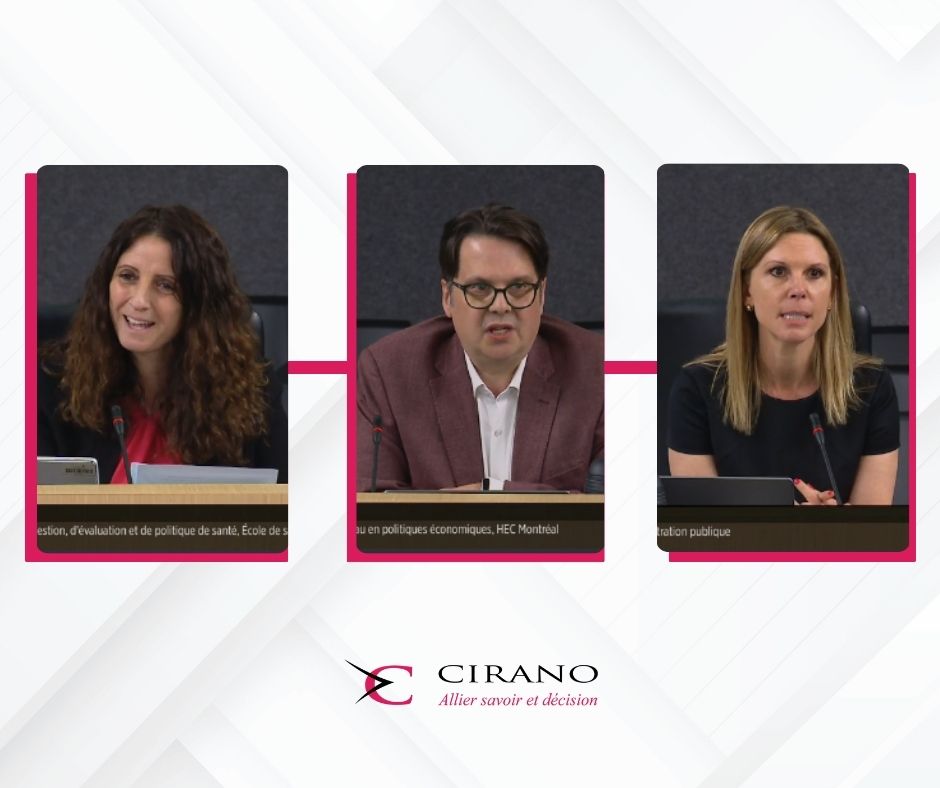© 2026 CIRANO. All rights reserved.
30 May 2025
Three CIRANO Members Contribute to the Debate on Improving Access to Medical Services
On May 28, three CIRANO members participated in the hearings held by the Committee on Health and Social Services at the National Assembly as part of the consultations on Bill 106, An Act mainly to establish the collective responsibility and accountability of physicians with respect to improving access to medical services. This ambitious legislation aims to reform access to care by assigning population-based responsibilities to family physicians and introducing a new remuneration framework.
Roxane Borgès Da Silva, Full Professor at the School of Public Health at Université de Montréal, emphasized the importance of robust measurement tools to assess the effectiveness of new practices, as well as the need to keep care centered on the real needs of patients across different practice settings.
Pierre-Carl Michaud, Full Professor at HEC Montréal and Chairholder of the Jacques Parizeau Research Chair in Economic Policy, addressed the economic incentives at stake. He discussed how capitation-based remuneration could affect the efficiency and distribution of primary care, especially in the context of workforce shortages.
Mélanie Bourassa Forcier, Professor at the École nationale d’administration publique (ENAP) and expert in health law and public policy, contributed a legal and ethical perspective on the bill. She explored the implications of collective accountability and performance-based governance mechanisms for the medical profession.
With complementary expertise in public health, health economics, and law, the three CIRANO members brought valuable insights to the legislative process, highlighting the conditions necessary for the success of such a transformative reform.
